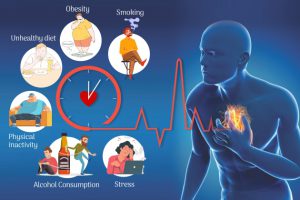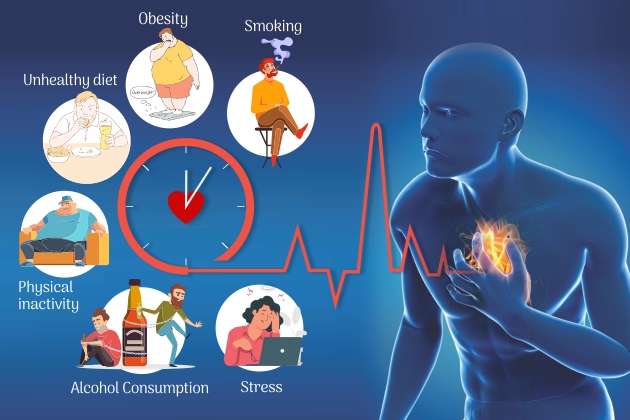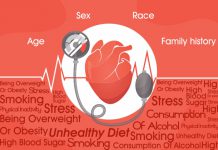

How to prevent cardiovascular diseases?
Gaining a better understanding of cardiovascular disease and its risk factors can help you prevent it. Cardiovascular diseases are conditions that affect the function of the heart and blood vessels. Different types of heart diseases include heart attack, heart failure, heart infection, heart valve disease, etc. The cause of heart disease depends on its specific type. But, the risk factors associated with different types of cardiovascular diseases are common. Some of the risk factors cannot be controlled whereas some of them can be controlled. Learning about them can help to prevent cardiovascular diseases.
Examples of the risk factors that we cannot control to prevent cardiovascular diseases
- Age
- Sex
- Race
- Family history
Examples of the risk factors that we can control to prevent cardiovascular diseases
- High blood sugar
- High levels of cholesterol
- Being overweight or obesity
- Unhealthy diet
- Physical inactivity
- Smoking
- Alcohol Consumption
- Stress
Steps to Prevent Cardiovascular Diseases
Regular health screenings:
Get regular health screenings to control high blood sugar, blood pressure, and cholesterol so that the risk of getting heart diseases can be reduced.
Get enough quality sleep:
Adults should get 7 to 9 hours of sleep per night to avoid getting high blood pressure, obesity, diabetes, and depression.
Reduce stress:
Some people under stress have a habit of overeating, heavy drinking, and smoking which increases blood pressure and the risk of a heart attack.
Stop smoking:
Smoking increases blood pressure and the risk for heart attack and stroke. Hence, avoid smoking.
Limit the consumption of alcohol:
Drinking alcohol raises blood pressure and adds extra calories to the body. This causes weight gain and increases the risk of heart disease.
Maintain a healthy weight:
Excess weight or obesity can increase blood sugar, blood pressure, high cholesterol. We should maintain our weight to lower these risks.
Regular exercise:
A systematic workout helps to maintain a healthy weight and reduces the chance of getting high cholesterol, blood sugar, and blood pressure.
Eat a healthy diet:
Include vegetables, fruits, beans, fish, fat-free dairy foods, whole grains, and healthy fats in your diet to prevent cardiovascular diseases.
If you have any symptoms of heart disease, consult your doctor and get your cardiac risk markers profile checked. This profile is a group of five tests done to assess the levels of cardiac risk markers like different lipids and CRP present in your blood. It helps to evaluate the risk of heart diseases.










